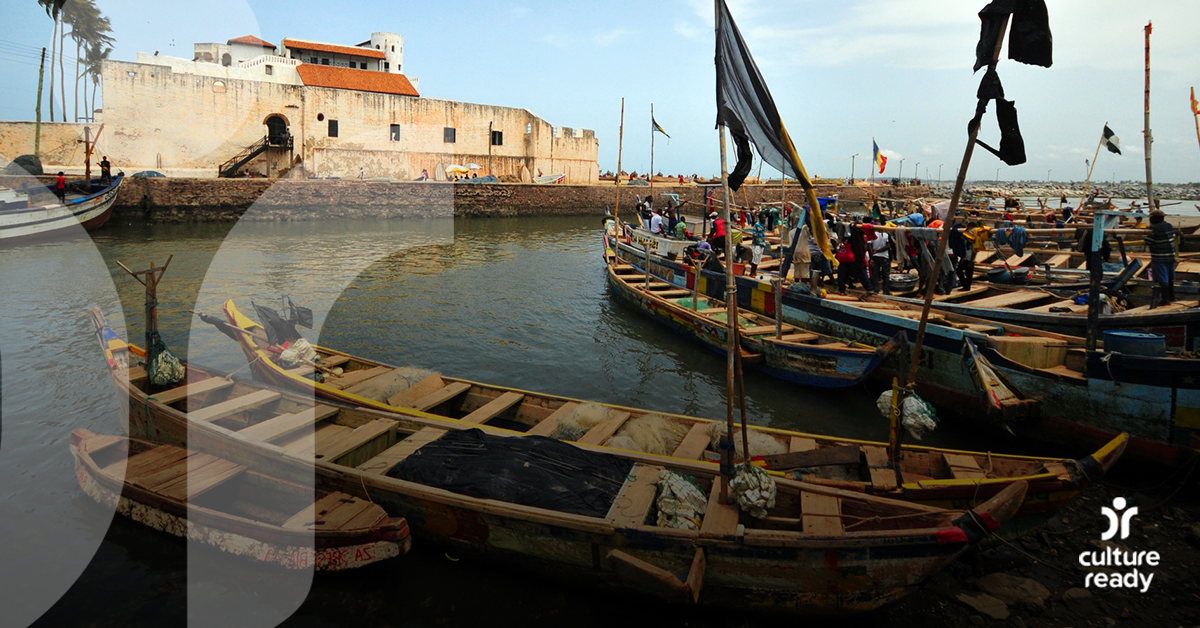Ghanaian Customs That Help You Understand the Culture
Ghana is home to many ethnic groups that are often organized into four main regional groups — the Mole-Dagbani, Ewe, Ga-Adangbe, and Akan, which make up more than half the population. Although each group has its unique customs, some cultural practices are common throughout the nation.
Ghanaian Handshake
Ghanaian handshakes are more intricate than in the United States. They involve a meeting of the middle fingers, turning your hands so you can see your palms, and then clicking together your forefingers and thumbs. It might take a while to get the handshake just right but is a great way to symbolize friendship.
Music Ban
For a couple of months a year, the Ga people have a ban on music throughout their coastal lands, which make up a big part of Accra and its beaches. The Ga believe the sea goddess Maame Water determines their luck in the coming year, and they implement a ban on music to appease her. The ban is lifted in May for the start of the Homowo harvest festival.
Kente Cloth
The bright colors and intricate designs of Kente cloth have made it recognizable around the world. The Ewe people have woven the cloth for centuries. There are hundreds of patterns of Kente cloth. Each block, color, and pattern has a distinct name and symbolic meaning. Gold or yellow symbolizes wealth, royalty, and spiritual purity, and blue conveys peace, harmony, and good fortune.
People wear Kente cloth during events like ceremonies and sacred occasions. People commonly give the gift of Kente cloth at weddings, naming ceremonies, and graduations.
Women wear Kente cloth in two pieces like a skirt and shawl, while men wear it as one piece similar to how the ancient Greeks wore togas.
Ghanaian Funerals
In Ghana, funerals hold a lot of importance within the community. The mourning process usually takes a week or more, with the family preparing the deceased for burial over many days and the formal funeral ceremony taking place on a Saturday.
At funeral ceremonies, Ghanaians wear formal black and white clothing that symbolizes giving thanks to God. In some regional groups, the immediate family of the deceased wear red and black. Sometimes, the sons of the deceased wear caps decorated with red pepper and eggshells to express the seriousness of the passing along with their sadness and grief.
The Importance of the Right Hand
Ghanaians use their right hand when giving or receiving an item. It is deeply offensive to hand a person something with the left hand, which is reserved for personal hygiene. Ghanaians also solely use their right hand for eating.
Ghanaian Naming System for Children
Ghana’s different regional groups have unique systems for naming babies based on the day of the week they are born.
The Akan people base names on the Kwa language’s six-day week in which each name is linked with a different concept. For example, infants born on Monday have names connected to peace. Those born on Thursday have names connected with the earth, and names associated with fertility, such a Kofi, Afia, or Afua, are given to children born on a Friday.
Children born to Fanti parents are named after the days of the week. Babies born on Tuesday may be named Quabena, Abena, or Bena, depending on the variation the family selects. Cudjoe, Kofo, Quajo, Ajuba, and Juba are names for newborns that arrive on a Monday.
Learn More:
12 Ghanaian Traditions and Customs
The Ghanaian Tradition of Day Names
Ghana National Cloth - Kente
